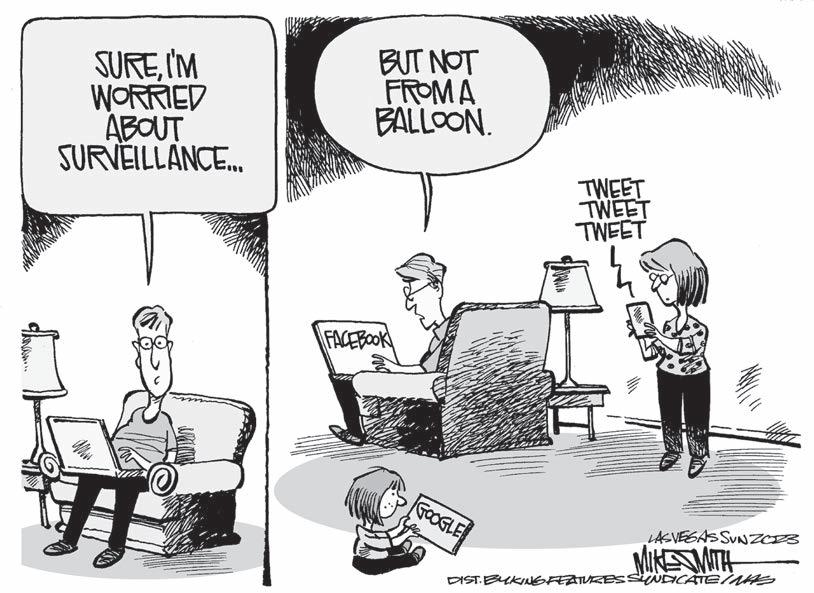
3 minute read
THE EDITOR
It seems like when anyone says a ordable housing is being planned for an area of the Denver metro area — It must mean ghetto because residents speak out against it and ght to stop it.
t seems that over the last two years, maybe more, the words “a ordability” and “equity” are trigger words for some.When I hear about an a ordable housing or apartment project, I am usually in favor of it, especially in areas of Arapahoe and Douglas counties. I do not think this housing is going to attract criminals and bad people. Let’s face it, the idea of “a ordable” right now doesn’t mean the neighborhood is going to become trash.
For many of those calling these plan a recipe for turning neighborhoods into the ghetto, another term I can’t say I am fond of, they should look at the price tag.
In all reality, the word “a ordable” likely means starter housing for young couples growing their income status year by year. It is likely meant for teachers how are struggling to live and work in the same communities.
ese are not bad people. ese are people I would happily be neighbors with.
Unfortunately, somewhere along the way, the word “a ordable” gained an unfair stigma that will continue to prevent progress.
As homes stay out of reach for the common, hardworking families — the Denver metro area will su er. It will su er because those hard-working, fundamental families that make an economy and community run — will leave.
ey will go somewhere a ordable, turn that community into a thriving area and we will lose here in our hometown.
To those who cringe when they hear about a project that is aimed at “a ordable housing” — I say do not get hung up on the word. Instead, read the plans, go with an open mind and look at what rent and sale prices will be and ask yourself if it will attract the bad neighbors that some seem to be afraid of.
Now, on to the second word that has gained a lot of attention in recent years — “equity.” Now, I get it. e media has certainly made that a true talking point and whatever side of the debate you are on — the word “equity” is coming up a lot.
e bottom line is, equity policies in schools, government and business are nothing new. ey have been around for as long as I have been alive. ey do have value in our society.
I just hate that any time an organization is looking at equity policies, we are starting to see the word as something bad, something that will change our way of lives.
Just like an a ordable housing, I encourage all to not stop at the word, but consider the policy or discussion being had. Don’t listen to the noise and nonsense generated on social media. Read them, form an opinion and have a true, useful debate and discussion.
After reading, it may very well be the language is too much and you want to have more discussion to tone it down. at is OK.
However, after looking past the word “equity” and giving a true, fair read to any proposal — try to nd common ground.
Know before saying ‘no’
Many times these are associated with salespeople who stopped short of asking their prospect for the order or fail to ask for critical information or an immediate next step. However, these sayings hold true for all of us.
For some, asking comes very naturally. We understand the consequences of not asking so we are always bold enough to speak up, knowing that fortune favors the bold. en there are others of us who have a deeply rooted fear of rejection so asking for something, anything requires us to summon our courage before breaking out into a cold sweat while meekly and nervously uttering out our question. ere is also something else at play here when it comes to hearing the word “no,” or being refused a request. Some people are so tired and burnt out that the word “no” has become their rst response to everything. Even the simplest of asks or tasks is met with resistance. e smallest requests are seen as monumental hills to climb. e thinking is that the person making such a request clearly has no idea just how much work this is going to require or how di cult it will be.
Saying “no” for some folks has become an art form, they can say “no” and still have the person who asked walk away feeling good. Others may subscribe to the philosophy of saying “no” to everything as fast as possible so others will stop asking them for anything. e rst word out of their mouth is literally always “no.”
Here’s the thing, sometimes we get so
9233 Park Meadows Dr.,
LINDA SHAPLEY Publisher lshapley@coloradocommunitymedia.com
MICHAEL DE YOANNA Editor-in-Chief michael@coloradocommunitymedia.com
THELMA GRIMES South Metro Editor tgrimes@coloradocommunitymedia.com
MCKENNA HARFORD Community Editor mharford@coloradocommunitymedia.com
ERIN ADDENBROOKE Marketing Consultant eaddenbrooke@coloradocommunitymedia.com
AUDREY BROOKS Business Manager abrooks@coloradocommunitymedia.com
ERIN FRANKS Production Manager efranks@coloradocommunitymedia.com










